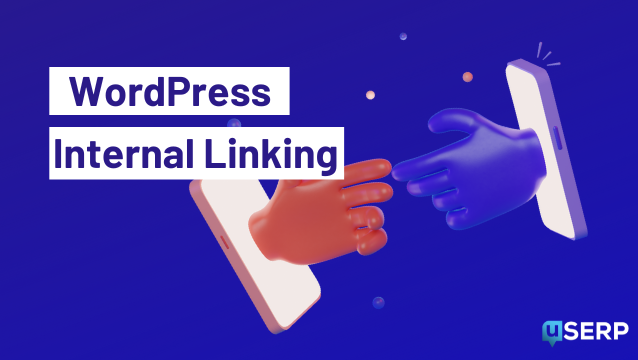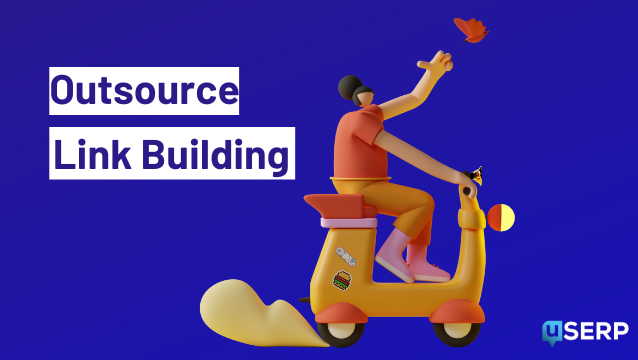One of the first problems new bloggers face is getting other sites to link to them. This can go a long way in helping them build a reputation as an industry expert, so many bloggers take matters into their own hands and head to the comment sections on bigger websites and more established blogs.
Now, doing this for the sake of networking and getting your voice heard is a great idea. But sadly, many novice site owners leave unwarranted comments along with a link to their own site in hopes that Google will consider this good link building.
Many newbie bloggers go overboard and spam the comments section, which is a waste of time and energy and may even prove detrimental to your website growth. We want you to be one of the success stories by using linking to your advantage. So, let’s figure out how you can use linking as part of a healthy digital marketing strategy.
Bulk commenting can get you penalized by Google
Google’s algorithms are getting smarter day by day, factoring in various aspects before ranking web pages. One of these factors includes how websites employ link building. It is natural to increase your site’s ranking, however endless blog comments and placing similar links all pointing to the same destination suggests automation, which Google is quick to disregard. So instead of artificially bumping your post, leave 1 or 2 blog comments and make gradual changes.
Google also has manual reviewers who analyze websites based on specific guidelines. Many sites never make it to the SERPs because they have thousands of useless links. Google crawlers will identify sites with unnecessary links and label them as spammers. In fact, Google now has a form for spam reporting that commenters and other blog owners can use to report your site as a potential source for spam.
Spamming blog comments can work against you
It is understandable that when a newbie blogger is starting out, they need connections to move forward. And the best way to do that is to engage with as many bloggers as possible. Commenting on blog posts is the best way to engage with bloggers, and it also gives you the chance to engage with other commenters on the post as well.
However, if you’re only commenting on someone’s blog to leave a URL instead of actually contributing to their post, you will appear desperate and tactless. It shows that you’re there to gain value for yourself without any care for the blog’s content.
If you are new to the industry, you may want some help getting started with strategic commenting and linking. It can be beneficial to hire freelance writers or SEO experts to help you promote yourself effectively.
Quality copywriting freelancers today can be hired at affordable rates, which is why you might want to consider working with a professional. But if you want to try on your own first, consider these tips to make the most of your linking for your blog.
- Follow established bloggers in your niche and interact with them consistently
- Configure DMARC setup and send them secure emails appreciating their content and let them know how their content helped you
- Leave sensible comments: this will include external links to related posts or any extra information that you think the blogger may find useful
- Interact through other social media channels
Commenting and linking best practices
Blog comments can be detrimental to your blog’s growth if all you do is stuff keywords in your comments and spam sites. Here are some tips on what to do instead.
Get quality referral traffic
The traffic you get from commenting on blogs alone will likely not be enough to expand your business. However, what referral traffic can do is create a brand presence in your niche and get engaged and relevant viewers to check out your blog. This technique is extremely important if you make money online or run an eCommerce store.
When you comment on a blog post, you are engaging in a conversation with other bloggers. Therefore, a well-made comment that contributes to the discussion can get you more referrals, as people will be interested in the content you have to offer. This also helps to build trust in your brand and make you stand out as an industry expert.
Employ deep backlinking
A common mistake for new bloggers when backlinking is to link too shallowly. This means linking to a part of a site that the main menu already has links to, such as the homepage or contact page.
You may think it’s a good idea to link to your main page to get traffic to your website, but this is actually not best practice. Also, you don’t simply want to say “Contact me,” and link to your contact page. Instead of linking to main pages or other shallow links, go deeper and choose something that might not already be visible elsewhere.
Choose specific blogs that are relevant to the topic you’re discussing and link to those. It’s okay if the posts are a little older – just because you wrote something a few months ago doesn’t mean it’s no longer relevant. This will make things feel more natural, since you are providing relevant content narrowed to what your readers are interested in.
Use editorially placed links
Good link building is important, but every time you place a link, you need to ask yourself, “does this add value?” For example, if someone links back to your website, are they doing it because they find your website’s content unique and engaging? If yes, then that’s quality editorial linking, and not simply spam or paid advertising.
A non-editorial link could be if you create a fake account on a website and use that to place links. Not only would that ruin the reputation of your website, but Google crawlers will be quick to identify any fake accounts and know that you’re not legit. Google puts much more weight on editorially-placed links, as one real editorially placed link is worth more than a thousand comment links.
To get more editorially placed links, your website’s content should be great. It should be well-researched, coherent, grammatically correct, and offer valuable advice for other bloggers to mention your website link on their posts. Another way of attracting more backlinks is to have a visually efficient website. A clean and clever design with socially enabled comments and reviews can increase traffic to your website and encourage people to comment.
According to online blogger and marketer Gary Stevens of Hosting Canada, it’s much easier to create a visually appealing website today.
“A website builder interface is what you see is what you get experience,” says Stevens. “That means that as you drag-and-drop elements around on the screen, you see a representation of your website. This visual aesthetic makes us feel happy and in control of our environment.”
It’s not just how you link, but what you link to that will catch the attention of other bloggers and potential subscribers. If your website provides a good user experience, both in design and content, other bloggers would also feel comfortable redirecting their traffic to your blog. If you want to know if your website provides good user experience and measure it’s usability you can always try to reach for website usability testing tools.
Support your website through externally hosted content
To improve your link visibility, promote your content by linking back to it on externally-hosted content like guest posts, free PDF and reports, etc. Strategically planning to place your content on these posts can get your website going viral, but it requires a strong content planning strategy.
Before you build your link bait, create 3-4 support pages (preferably guest blog posts) where you can link back to your original content as a prime resource. Make sure your backlinks are relevant and have natural anchors. This will not only redirect your traffic to the original content but will also get traffic from your guest’s blog to your website.
Stay abreast of the industry buzz
You should always make an effort to be aware of what is going on in the must-read blogs in your industry. Reading these will keep you up-to-date on current trends and aid in your own content creation as well. And commenting on them will help you consistently maintain a conversation with other bloggers and industry experts.
These need not be directly in your niche either. If they’re what your target audience is reading, they’re fair game. Leaving thoughtful and informative comments (and backlinking to relevant posts on your own site) can widen the range of topics you are involved with. While it’s good to stick to what you know and establish yourself as an expert, occasionally going outside of your niche can help you cast a wider net and gather more followers.
Conclusion
If you’re looking to have a large following and increase your subscribers, referral traffic alone will not do it for you. If you want to create your brand name in the niche and establish connections with other bloggers, then reading blogs regularly and commenting on them might be a good start. But remember not to go overboard. Instead, comment to contribute to the discussion and avoid spamming at all costs. Make sure you save your linking strategies for SEO and getting traffic to your site, not for spamming the comments on other bloggers’ posts.







